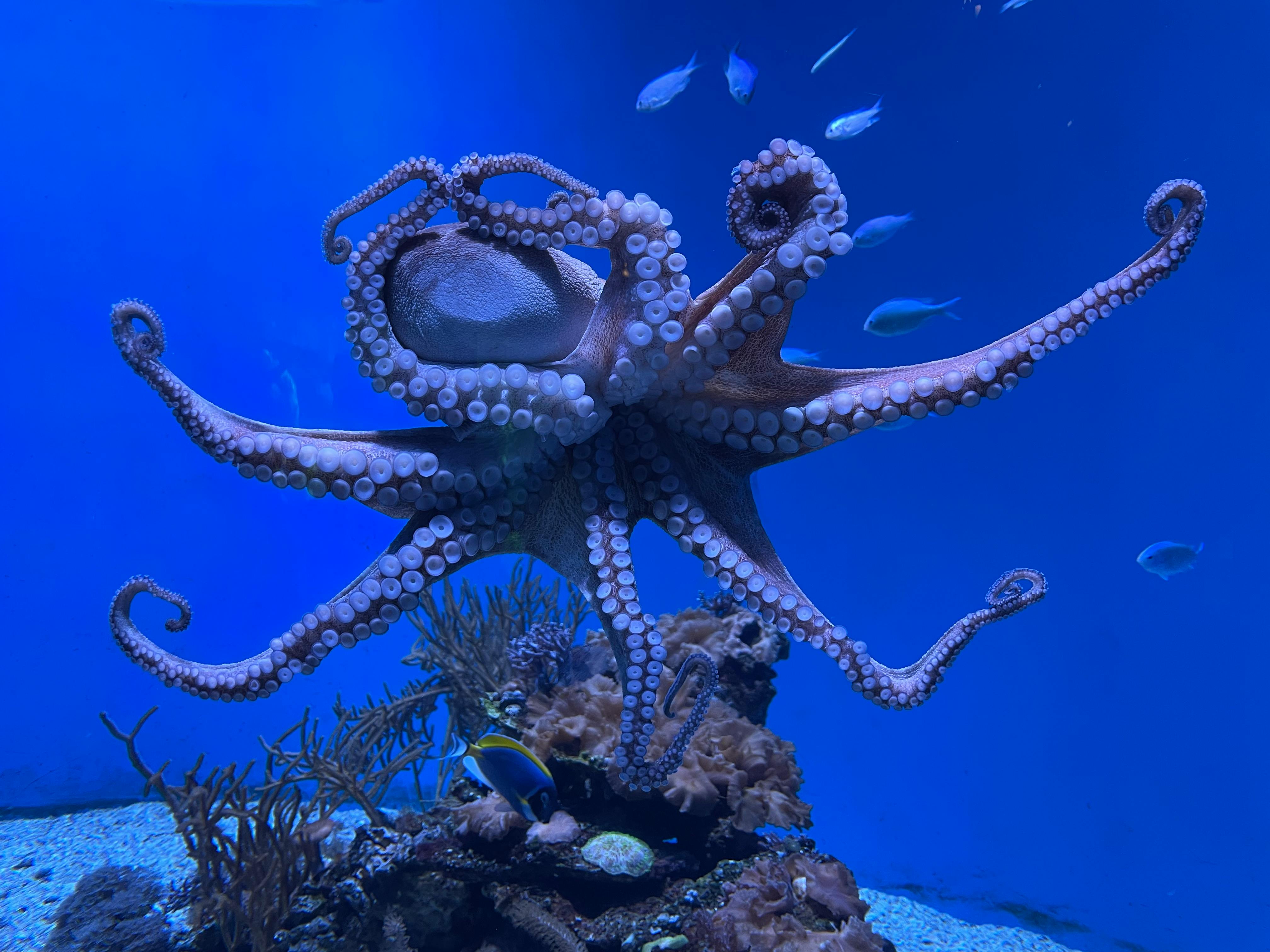Diving into the Mysterious World of Octopus Intelligence
Introduction: What if the most intelligent creature on earth wasn’t a human or even a mammal, but an eight-armed, three-hearted, jet-propelled invertebrate? Journey with us as we delve into the captivating world of octopus intelligence and explore how these aquatic masterminds continue to baffle scientists with their extraordinary cognitive abilities.

Unraveling the Octopus Enigma: A Historical Backdrop
Octopuses, belonging to the cephalopod family, have long fascinated researchers with their uncanny neurological prowess. Dating back to the 19th century, scientists started noticing unusual behaviors in these soft-bodied creatures. Early marine biologists were intrigued by their ability to change colors and shapes, indicative of complex neural processes. However, it wasn’t until the late 20th century that we began to grasp the depth of their cognitive capabilities.
Revolutionizing the Understanding of Animal Intelligence
Recent studies have highlighted how octopuses exhibit problem-solving skills, short and long-term memory, and even playfulness, traits previously associated only with higher mammals. Researchers at the Marine Biological Laboratory in Woods Hole, Massachusetts, have reported octopuses unscrewing jars to get to food, while others have been known to escape their tanks using complex maneuvers. These findings are challenging our preconceptions about the nature of intelligence itself.
The Priceless Octopus: A New Market Trend?
Interestingly, the increasing fascination with octopus intelligence has also led to a growing demand for them as exotic pets. However, this trend has raised ethical considerations given their complex needs and short lifespan. The price of a pet octopus ranges from $30 to over $1,000, depending on the species. This trend is also impacting the aquarium trade, bringing octopuses into the spotlight as never before.
The Science Behind the Genius: A Closer Look
What makes octopuses so intelligent? It’s all in their brains and genes. Octopuses possess large brains relative to their size and have more than 500 million neurons, similar to dogs. More intriguingly, two-thirds of these neurons reside in their arms, which can independently taste, touch, and control movement. Moreover, their genome reveals a vast number of gene families previously unknown in invertebrates, possibly contributing to their high intelligence.
Octopuses Today: Keeping Up with the Eight-Armed Wonders
In today’s news, octopuses continue to captivate the scientific community and the public alike. Recent studies are investigating their potential for learning through observation and their capacity for consciousness. Their complex behaviors and high adaptability continue to inspire robotics, AI, and neuroscience research, further cementing their place as one of the most intriguing creatures on the planet.
As we continue to discover more about these mysterious marine creatures, we’re forced to rethink our understanding of intelligence. Octopuses, with their alien-like abilities and remarkable cognitive skills, remind us that intelligence comes in many forms, some of which are yet to be fully understood.




